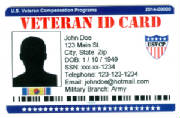|
|
|
|
Agent Orange News
Agent Orange Month October is Agent Orange Awareness Month, and while many of the negative effects of Agent Orange,
an herbicide most infamously used by the U.S. Government in Vietnam, and Southeast Asia have been known for some time. However,
many of those impacted by the substance are unaware of the Department of Veterans Affairs (VA) benefits available to them
if they have been exposed. According
to the VA website, the U.S. Military poured millions of gallons of Agent Orange and other herbicides on trees and vegetation
during the Vietnam War. The
VA offers an exam for veterans who qualify to determine if they are eligible for benefits. Veterans eligible for the Agent Orange Registry health exam include:
Agent Orange Breakthrough
Thanks to Army veteran Gene Clarke, thousands of veterans may be in line for much needed compensation. Clarke has discovered documentation showing that veterans may have been exposed to Agent Orange in Korea. Using the Apple iPad his wife gave him as a retirement gift, Clarke was surprised by all the online documents he found showing that U.S. soldiers who served in Korea during 1967 may have been exposed to Agent Orange.
Now, here’s the hard part for Clarke, convincing government officials that Agent Orange was in fact used in Korea before 1968 in the narrow demilitarized zone between North and South Korea where about 55,000 U.S. soldiers served during the mid and late 1960s.
Clarke is an Army veteran who served in Korea in 1967. If confirmed, his efforts mean thousands of veterans could become eligible for ailments they hadn't suspected were connected to Agent Orange, the highly toxic chemical used to defoliate trees and jungle vegetation to expose enemy troops below.
"There are probably people out there who have no clue why they are sick because they weren't in Vietnam," said Tony DiFrancesco, the director of veteran's affairs for Dauphin County.
DiFrancesco was referring to the fact that many Vietnam veterans are eligible for benefits related to Agent Orange. So are veterans who served in the so-called DMZ in Korea from from 1968 to 1971. The eligibility stems from the fact the U.S. government has acknowledged use of Agent Orange in those areas beginning in 1968.
Meanwhile, Clarke about 10 years ago developed Type II diabetes — one of the conditions associated with Agent Orange.
Between 1962 and 1971, the U.S. military sprayed approximately 20 million gallons of herbicides in Vietnam, a tactical operation known as "Operation Ranch Hand." More than half of it was Agent Orange.
If the government extends the benefits, it could mean better health care for the affected veterans and compensation for them, and their spouses, for disabilities related to Agent Orange exposure. Agent Orange has been linked to a list of illnesses, including several cancers, Type II diabetes and assorted ailments affecting the skin, nervous system and organs.
|
|
|
|

